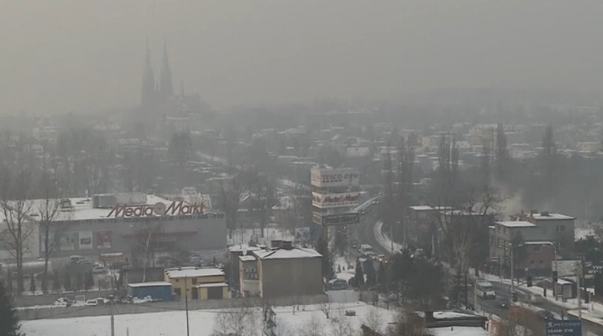
GLIWICE, Poland (Reuters) — Engineers from the Silesian University of Technology in Gliwice are testing a cost-effective electrostatic precipitator for households which use coal or other polluting fuels for heating.
The system developed by the scientists can be mounted directly onto the chimney of a house or apartment building and uses electrostatic charges to stop dust particles.
Dust carrying pollutants are deposited on the precipitator walls and does not escape alongside the smoke into the atmosphere.
“The ionized particles are deposited on the inner part of the body, where they are gathered by an automatic ash removal system,” explained Doctor Roman Kubica, the lead scientist on the project.
Every winter, pollution levels skyrocket in regions where burning coal is often the cheapest and most available method of heating houses. In January, in Poland’s southern coal mining town Rybnik, the norms for airborne dust particles reached dangerous levels, engulfing the city in smog.
Often the regions affected have scarce access to gas infrastructure, while changing the heating system of a house is too expensive for its inhabitants.
“The use of electronic filter devices allows end users to continue to exploit cheap heat sources, like solid fuels coal, wood, or formed wood, such as pellets. Here is a fundamental advantage, I think,” Kubica said.
“The transition to other, cleaner, fuels such as gas, is mostly dependent on access to infrastructure and if it’s not there, then there are long-term investments (needed),” he added.
The Silesia scientists say that their filter mounted can stop 60 to 90 percent of pollutants from reaching the atmosphere and it is up to four times cheaper than currently available systems, used mostly in heavy industry.
Using patented solutions inside the device, the waste from the combustion process must be removed once a month by users.
Due to Poland’s high levels of air pollution in many cities there have been plans to introduce a total ban on burning coal and wood – which could prove problematic to enforce and expensive for homeowners. The Gliwice scientists say their solution will solve the problem of high pollution in many places, particularly where construction of pipelines and replacement for gas-powered furnaces could take many years.
Several hundred devices will be installed in towns in the Silesia Region at the end of 2017 as part of a pilot program by the university, together with local authorities.








